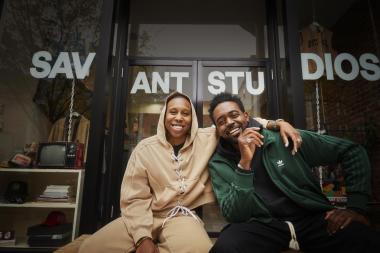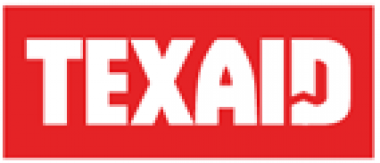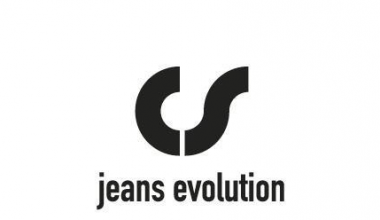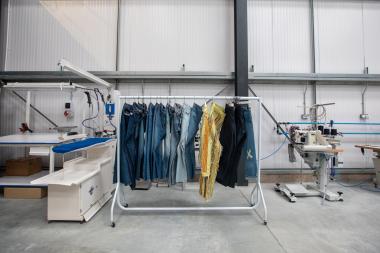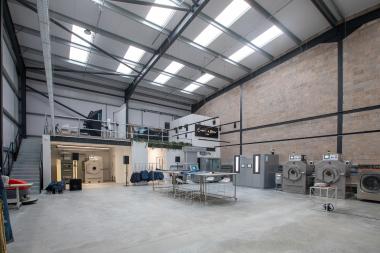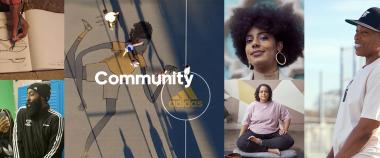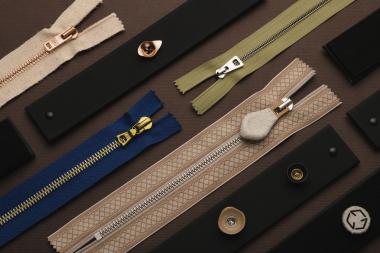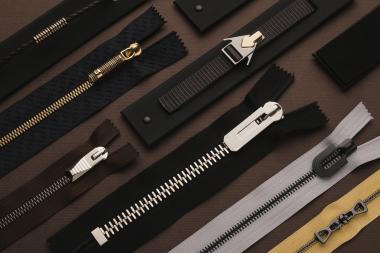adidas with strong growth in Western markets in Q2
- Currency-neutral sales up 4%, despite more than € 300 million negative impact from macroeconomic constraints
- Markets representing more than 85% of the business grow 14% overall
- Gross margin down 1.5pp to 50.3% reflecting significantly higher supply chain costs
- Operating profit reaches € 392 million
- Net income from continuing operations amounts to € 360 million
- FY 2022 outlook reflects double-digit growth during the second half of the year
“Our Western markets continued to show strong momentum in the second quarter amid heightened macroeconomic uncertainty. With Asia-Pacific returning to growth, markets combined representing more than 85% of our business grew at a double-digit rate,” said adidas CEO Kasper Rorsted. “With sports back at center stage this summer, revenues in our strategic growth categories Football, Running and Outdoor all increased by double digits. However, the macroeconomic environment, particularly in China, remains challenging. The recovery in this market is – due to continued covid-19-related restrictions – slower than expected. And we have to take into account a potential slowdown in consumer spending in all other markets for the remainder of the year.”
Currency-neutral revenues increase 4% despite macroeconomic constraints
In the second quarter, currency-neutral revenues increased 4% as adidas continued to see strong momentum in Western markets. This growth was achieved despite continued challenges on both supply and demand. Supply chain constraints as a result of last year’s lockdowns in Vietnam reduced top-line growth by around € 200 million in Q2 2022. In addition, the company’s decision to suspend its operations in Russia reduced revenues by more than € 100 million during the quarter. Continued covid-19-related lockdowns in Greater China also weighed on the top-line development in Q2. From a channel perspective, the top-line increase was to a similar extent driven by the company’s own direct-to-consumer (DTC) activities as well as increases in wholesale. Within DTC, e-commerce, which now represents more than 20% of the company’s total business, showed double-digit growth reflecting strong product sell-through. From a category perspective, revenue development was strongest in the company’s strategic growth categories Football, Running and Outdoor, which all grew at strong double-digit rates. In euro terms, revenues grew 10% to € 5.596 billion in the second quarter (2021: € 5.077 billion).
Strong demand in Western markets
Revenue growth in the second quarter was driven by Western markets despite last year’s lockdowns in Vietnam still reducing sales, particularly in EMEA and North America, by
€ 200 million in total. In addition, the top-line development in EMEA was also impacted by the loss of revenue in Russia/CIS of more than € 100 million. Nevertheless, currency-neutral sales grew 7% in the region. Revenues in North America increased 21% during the quarter driven by growth of more than 20% in both DTC and wholesale. Revenues in Latin America increased 37%, while Asia-Pacific returned to growth. Currency-neutral revenues increased 3% in this market despite still being impacted by limited tourism activity in the region. In contrast, the company continued to face a challenging market environment in Greater China, mainly related to the continued broad-based covid-19-related restrictions. As a result, currency-neutral revenues in the market declined 35% during the three-months period, in line with previous expectations. Excluding Greater China, currency-neutral revenues in the company’s other markets combined grew 14% in Q2.
Operating profit of € 392 million reflects operating margin of 7.0%
The company’s gross margin declined 1.5 percentage points to 50.3% (2021: 51.8%). Significantly higher supply chain costs and a less favorable market mix due to the significant sales decline in Greater China weighed on the gross margin development. This could only be partly offset by a higher share of full price sales, first price increases and the benefits from currency fluctuations. Other operating expenses were up 19% to € 2.501 billion (2021: € 2.107 billion). As a percentage of sales, other operating expenses increased 3.2 percentage points to 44.7% (2021: 41.5%). Marketing and point-of-sale expenses grew 8% to € 663 million (2021: € 616 million). The company continued to prioritize investments into the launch of new products such as adidas’ new Sportswear collection, the next iteration of its successful Supernova running franchise and first drops related to the Gucci collaboration as well as campaigns around major events like ‘Run for the Oceans.’ As a percentage of sales, marketing and point-of-sale expenses were down 0.3 percentage points to 11.8% (2021: 12.1%). Operating overhead expenses increased by 23% to a level of € 1.838 billion (2021:
€ 1.492 billion). This increase was driven by adidas’ continuous investments into DTC, its digital capabilities and the company’s logistics infrastructure as well as by unfavorable currency fluctuations. As a percentage of sales, operating overhead expenses increased 3.5 percentage points to 32.8% (2021: 29.4%). The company’s operating profit reached a level of € 392 million (2021: € 543 million), resulting in an operating margin of 7.0% (2021: 10.7%).
Net income from continuing operations reaches € 360 million
The company’s net income from continuing operations slightly declined to € 360 million (2021: € 387 million). This result was supported by a one-time tax benefit of more than € 100 million due to the reversal of a prior year provision. Consequently, basic EPS from continuing operations reached € 1.88 (2021: € 1.93) during the quarter.
Currency-neutral revenues on prior year level in the first half of 2022
In the first half of 2022, currency-neutral revenues were flat versus the prior year period. In euro terms, revenues grew 5% to € 10.897 billion in the first six months of 2022 (2021:
€ 10.345 billion). The company’s gross margin declined 1.7 percentage points to 50.1% (2021: 51.8%) during the first half of the year. While price increases as well as positive exchange rate effects benefited the gross margin, these developments were more than offset by the less favorable market mix and significantly higher supply chain costs. Other operating expenses increased to € 4.759 billion (2021: € 4.154 billion) in the first half of the year and were up 3.5 percentage points to 43.7% (2021: 40.2%) as a percentage of sales. adidas generated an operating profit of € 828 million (2021: € 1.248 billion) during the first six months of the year, resulting in an operating margin of 7.6% (2021: 12.1%). Net income from continuing operations reached € 671 million, reflecting a decline of € 219 million compared to the prior year level (2021: € 890 million). Accordingly, basic earnings per share from continuing operations declined to € 3.47 (2021: € 4.52).
Average operating working capital as a percentage of sales slightly decreases
Inventories increased 35% to € 5.483 billion (2021: € 4.054 billion) at June 30, 2022 in anticipation of strong revenue growth during the second half of the year. Longer lead times as well as the challenging market environment in Greater China also contributed to the increase. On a currency-neutral basis, inventories were up 28%. Operating working capital increased 23% to € 5.191 billion (2021: € 4.213 billion). On a currency-neutral basis, operating working capital was up 14%. Average operating working capital as a percentage of sales decreased 0.4 percentage points to 21.0% (2021: 21.4%), reflecting an overproportional increase in accounts payable due to higher sourcing volumes and product costs.
Adjusted net borrowings at € 5.301 billion
Adjusted net borrowings amounted to € 5.301 billion at June 30, 2022, representing a year-over-year increase of € 2.155 billion (June 30, 2021: € 3.146 billion). This development was mainly due to the significant decrease in cash and cash equivalents.
FY 2022 outlook reflects double-digit growth during the second half of the year
On July 26, adidas adjusted its guidance for FY 2022 due to the slower-than-expected recovery in Greater China since the start of the third quarter resulting from continued widespread covid-19-related restrictions. adidas now expects currency-neutral revenues for the total company to grow at a mid- to high-single-digit rate in 2022 (previously: at the lower end of the 11% to 13% range), reflecting a double-digit decline in Greater China (previously: significant decline). While so far the company did not experience a meaningful slowdown in the sell-through of its products or significant cancellations of wholesale orders in any market other than Greater China, the adjusted guidance also accounts for a potential slowdown of consumer spending in those markets during the second half of the year as a result of the more challenging macroeconomic conditions. Therefore, growth in EMEA is now expected to be in the low teens (previously: mid-teens growth), while revenues in Asia-Pacific are projected to grow at a high-single-digit rate (previously: mid-teens growth). Despite the more conservative view on the development of consumer spending in the second half of the year, adidas has increased its forecasts for North America and Latin America reflecting the strong momentum the brand is enjoying in these markets. In North America, currency-neutral revenues are now expected to increase in the high teens. Sales in Latin America are projected to grow between 30% and 40% (both previously: mid- to high-teens growth).
Due to the less favorable market mix and the impacts from initiatives to clear excess inventories in Greater China until the end of the year, gross margin is now expected to reach a level of around 49.0% (previously: around 50.7%) in 2022. Consequently, the company’s operating margin is now forecast to be around 7.0% (previously: around 9.4%) and net income from continuing operations is expected to reach a level of around € 1.3 billion (previously: at the lower end of the € 1.8 billion to € 1.9 billion range).
adidas










